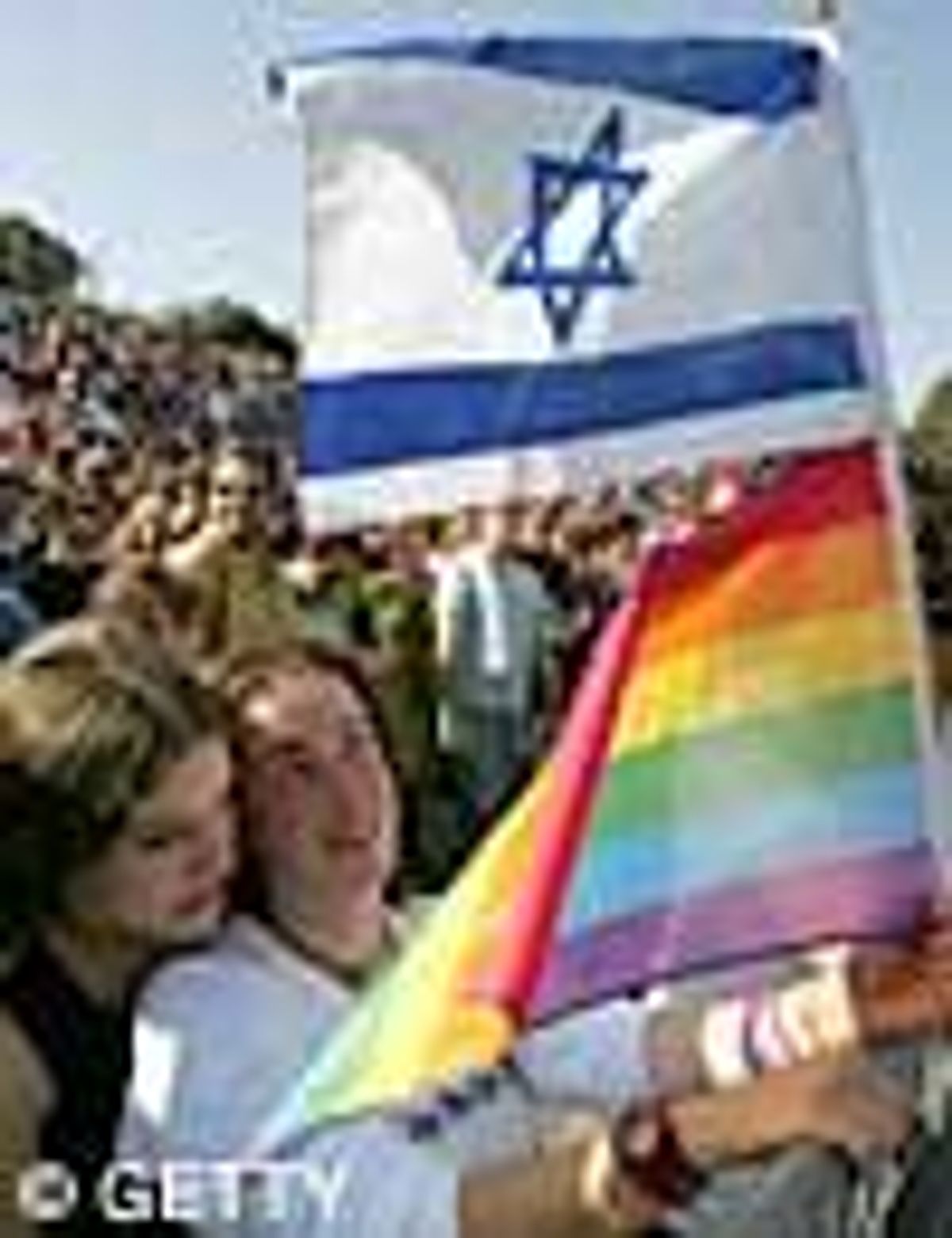Thousands of
police deployed across Jerusalem on Thursday to head off any
violence at a gay pride march that has sparked riots by
ultra-Orthodox Jews and denunciations by Muslim and
Christian leaders.
The annual gay
rally highlights the deep divide between the city's
secular and religious communities, with marchers demanding
to exercise their civil rights and opponents claiming
the march debases the holy city. Opposition to the
march has generated violence in the past, and the
7,000 police far outnumbered the several hundred marchers
who had gathered at the rallying point shortly before
the parade began.
Several hundred
ultra-Orthdox protesters held a counterdemonstration in
another part of Jerusalem ahead of the march, bringing
traffic to a standstill. Trash bins were set afire,
and smoke and the stench of burning garbage wafted
through the air.
Protest leaders
chanted psalms through loudspeakers, and marchers waved
banners saying ''Shame'' and ''Israeli Supreme Court:
Destroying the Holy City.''
Opponents
appealed to the Israeli supreme court to ban the march, but
the justices ruled Wednesday night that it could go
ahead.
Ultra-Orthodox
Jews have rioted repeatedly over the past week, burning
tires, assaulting policemen, and damaging police cars.
Police spokesman
Micky Rosenfeld said 22 policemen were injured and 130
people arrested in the run-up to the parade, including a
32-year-old ultra-Orthodox man caught Thursday
carrying a homemade explosive device. Under
questioning the man said he had planned to plant the
explosive along the parade route, Rosenfeld said.
At the 2005 march
an ultra-Orthodox man stabbed three marchers. Last year
the street parade was canceled because of safety concerns;
instead, gays celebrated at a sports stadium on the
edge of the city.
The gay pride
event routinely brings together the religious leaders of
Jerusalem in a consensus of condemnation.
On Thursday,
Sheik Mohammed Hussein, mufti of Jerusalem and Palestine,
denounced the march and criticized the government for
permitting it.
''Such a march
contradicts all religions and morals and the natural human
way of being, '' he said.
Seven thousand
police were mobilized in expectation of 5,000 marchers,
Rosenfeld said. The parade route has been limited to 500
meters past the landmark King David hotel to a nearby
park, where a rally will be held.
Many main streets
in the downtown area were closed hours before the
march, and public transportation has been routed away from
the city center. A fleet of ambulances was standing by
in anticipation of possible violence.
Israel's Magen
David Adom rescue service said in a statement it was
preparing an ''unprecedented operation,'' readying 200
medics, 45 ambulances, 11 mobile intensive care units,
and a field command center. Additional medics and
ambulances will be on standby, the statement said.
''Perhaps we
should thank the ultra-Orthodox community for giving us what
we want, which is visibility that will lead to a kind of
acceptance of our place in this city,'' said Jerry
Levinson, a gay activist, before the rally began.
He estimated that
60,000 gays lived in metropolitan Jerusalem.
Jerusalem's gay
pride parade has in the past been a relatively modest
affair, with none of the flamboyant costumes or nudity
common at similar events elsewhere in the world, or
even in the nearby Israeli city of Tel Aviv.
The annual gay
pride march in Tel Aviv usually proceeds without incident.
(Ben Hubbard, AP)



















































































